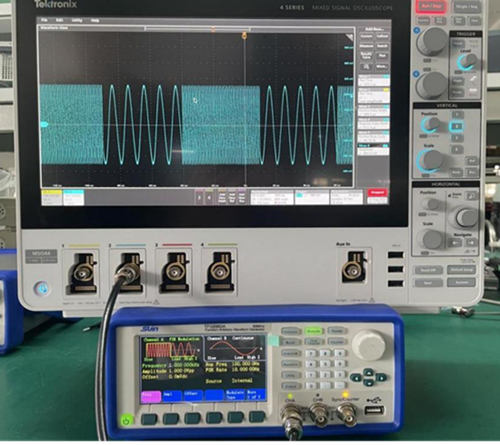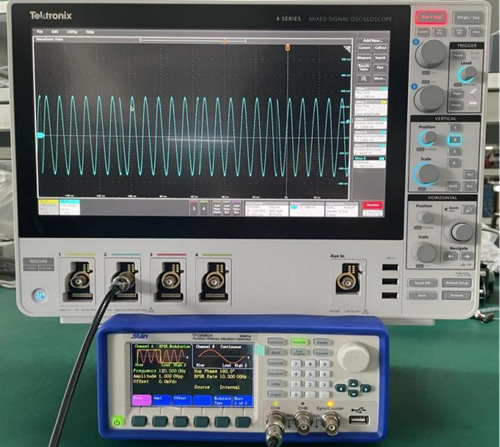Digital Modulation Introduction of TFG6960A
Modulation plays a very important role in a communication system. It has a great impact on the system's transmission effectiveness and reliability and determines the performance of a communication system.
Analog modulation and digital modulation are two different signal modulation methods, analog modulation has poor anti-interference ability, easy to produce clutter and so on. Compared with analog modulation, digital modulation has better anti-disturbance performance, stronger anti-channel loss, and better security, widely used in television broadcasting, telephone communications, wireless communications, satellite communications and other fields .
Digital modulation is using digital signals to control the parametric changes of the carrier signal, which is an important method of modern communication, Then we take our TFG6960A as an example to introduce two commonly used digital modulation.
FSK: Different frequencies are used to represent different signals.
For example, open the modulation mode, select FSK, set frequency, amplitude, Hop frequency, and FSK frequency of the generator, connect to the oscilloscope, and view the modulated signal, shown in Fig 1.

Fig 1. FSK Modulation
BPSK: 0 and 1 are used to judge the phase of the signal before and after.
For example, select BPSK, set frequency, BPSK frequency, and Hop frequency, and view the signal on the oscilloscope, shown in Fig 2.

Fig 2. BPSK Modulation
Above is the introduction of the digital modulation of TFG6960A, if you also want to know more about its analog modulation, welcome to consult.


